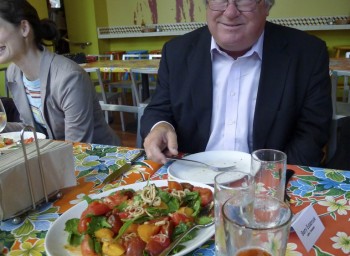For the second dinner in our Eat With Bon Appétit series, we once again gathered at Mijita in San Francisco. This time, the guest of honor was Barry Estabrook, author of the new book Tomatoland: How Modern Industrial Agriculture Destroyed Our Most Alluring Fruit. The winner of a 2011 James Beard Award for his blog, Politics of the Plate, Barry has dug deep into the sterile, sandy soil of Florida’s tomato industry to reveal why most of the tomatoes Americans eat have no flavor and to illuminate the equally unsavory labor practices under which these rock-hard fruits are grown.
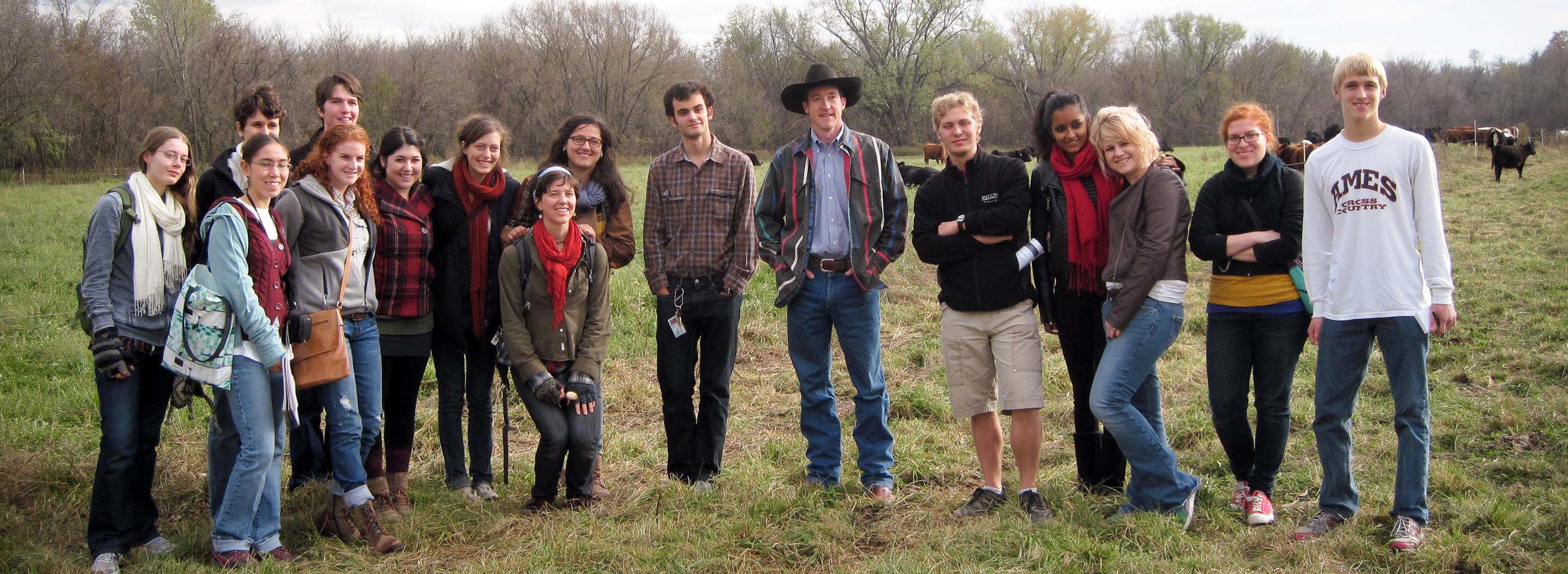
The Bon Appétit Blog
+ Blog Categories
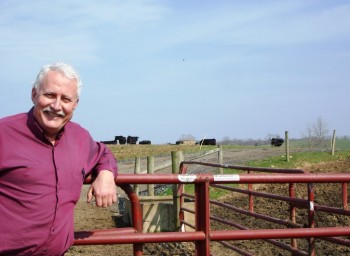
Grain-fed vs. grass-fed beef — and somewhere in between?
- Blog
Thanks to Michael Pollan‘s book The Omnivore’s Dilemma and the documentary Food, Inc., more people have become aware that the majority of cows in this country are raised on a grain-based diet for the last few months of their lives — and why that’s problematic for the health of the cows, the health of the humans who eat them, and the environment. The short version: Grains such as corn and soy are cheap carbohydrates that make cows get fat fast (not unlike humans). But cows’ digestive systems were designed to handle a high-fiber diet of mostly fresh grass or hay, with some natural grains. High-grain corn and soy diets — and the feedlots in which they are stuffed with them — cause many cattle to get sick, and encourage the prevalence of antibiotic-resistant E. coli as well. But as with […]
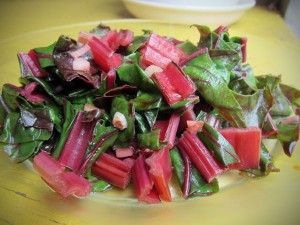
Get Closer to Your Food: Simple Sautéed Garlic Chard (or other greens)
- Blog
By Kristen Rasmussen, MS, RD For this month’s Well Being Challenge, we’re encouraging you to Get Closer to Your Food by making meals with seasonal ingredients from local producers. We’d love for you to show your commitment to the local food community by sharing your food pictures or comments about your local and seasonal food experiences on our Facebook page wall. Here’s a quick, tasty recipe to get you started. Simple Sautéed Garlic Chard (or other greens) Serves 6-8
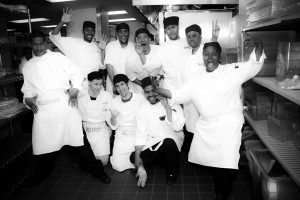
Chefs Get Creative in Chopped! Competition at Emmanuel College
- Blog
Teams of highly trained, ultra-competitive Bon Appétit chefs have been making their way around the Eastern Seaboard competing in elite contests modeled after Chopped!, the hit Food Network television show. Chefs compete to create culinary masterpieces from a box of mystery ingredients in a short amount of time. Each ingredient in the box must be incorporated into the dish for that round, and given the often random combinations of items, that’s often no easy task! The “steaks” are so high, only the brave need apply.
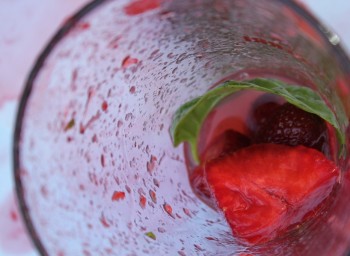
Duncan’s Summer Grappa Cocktail
- Blog
Why does Duncan Chase like working as lead bartender at Bon Appétit Management Company’s TASTE Restaurant? He says because hereally gets to have fun and be creative with the drinks he makes. At the Seattle Chef’s Collaborative Seasonal Cocktails Meet & Greet, hosted at the Mistral Kitchen Patio Rooftop recently, I got to try Duncan’s grappa cocktail. It was so delicious that I asked him to share his recipe with us. Here it is, including some of TASTE’s producers — the perfect late summer cocktail for this long weekend. Soft Tail Sparkling Sunset
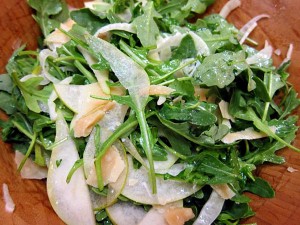
Get Closer to Your Food: Arugula Salad with Fennel, Pear, & Shaved Parmesan
- Blog
By Kristen Rasmussen, MS, RD For this month’s Well Being Challenge, we’re encouraging you to Get Closer to Your Food by making meals with seasonal ingredients from local producers. We’d love for you to show your commitment to the local food community by sharing your food pictures or comments about your local and seasonal food experiences on our Facebook page wall. Here’s a delicious farmers-market salad to get you started. Arugula Salad with Fennel, Pear, & Shaved Parmesan Serves 4

We’re No. 1! And No. 2, 4-6, 17, 20, and 22!!!
- Blog
This week, as millions of college students headed back to school, Newsweek/The Daily Beast released its College Rankings 2011, with categories including Most Service-Oriented, Most Beautiful, Future CEOs, and — most important to us — Best College Food, honoring those schools that “go above and beyond to make it great.” We are proud to say that on that list of 25, Bon Appétit Management Company teams feed a whopping eight of them:
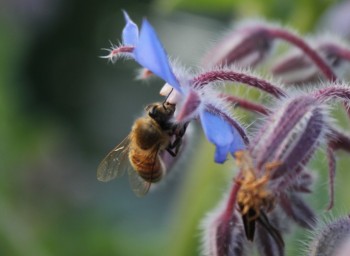
How We Can Bee the Change: Pollination Panel Discussion at Seattle U
- Blog
Recently at Seattle University, Bon Appétit Management Company and Slow Food Seattle cosponsored a free showing of the new documentary Vanishing of the Bees, which was directed by George Langworthy and Maryam Heinen and narrated by actress Ellen Page. An astonishing 350 people attended the showing and the panel discussion with local beekeepers that followed.

Lemon & Olive Oil Cake with Fresh Berries
- Blog
Here’s a healthy dessert to round out this week’s bulghur and broccoli dishes
Eat Real! Bon Appétit Teams Up with Food Day
- Blog
Bon Appétit Management Company is pleased to announce that it has joined the campaign for Food Day, a nationwide celebration of real food and an effort to improve health, the environment, and America’s food system. It’s a grassroots mobilization to push for healthy, affordable food produced in a sustainable, humane way. On October 24, 2011, people will gather at events big and small and from coast to coast in homes, schools, colleges, churches, city halls, farmers markets, supermarkets, and elsewhere to both learn and advocate.
